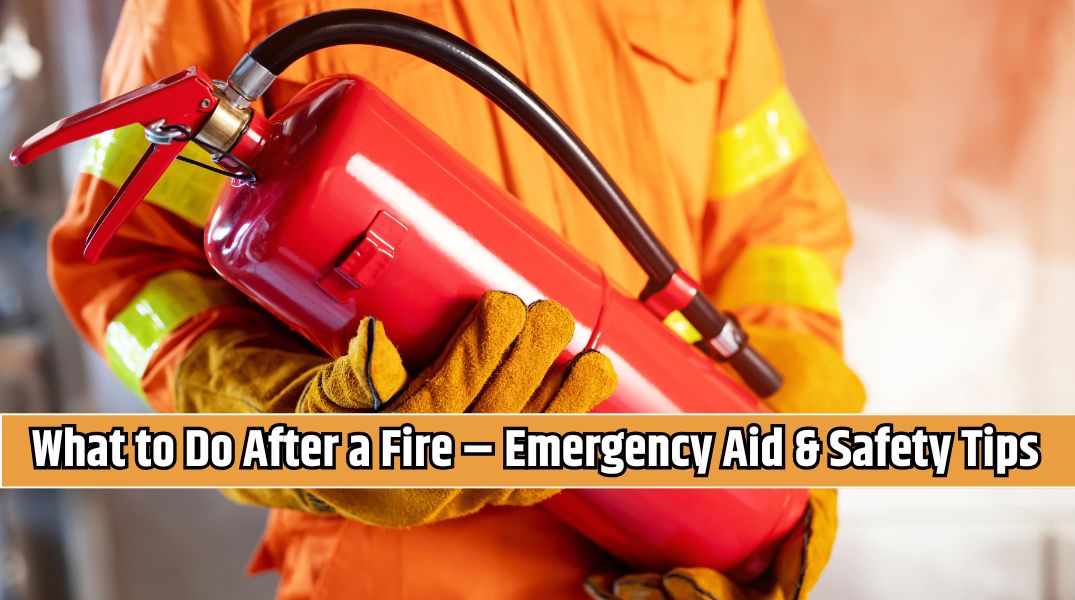A house fire can be a devastating event, leaving families in need of urgent support. If you experience a fire, there are organisations that can help with emergency accommodation, financial aid, and essential supplies. Additionally, taking the right fire safety measures can help prevent such disasters.
This guide covers how to get emergency help, where to find temporary housing, and essential fire safety tips to keep your home and family safe.
Emergency Help After a House Fire
If you lose your home or belongings in a fire, you can receive immediate assistance from organisations like the Red Cross and your local council.
1. How the Red Cross Can Help
The British Red Cross provides emergency support, including:
Temporary accommodation if you have nowhere to stay.
Clothing and food for those affected by a fire.
Emotional support and guidance to help you recover.
Help with insurance claims and paperwork.
To get assistance, contact your local Red Cross branch or visit their website.
2. Emergency Housing Support from Your Local Council
If you have no place to stay, your local council may offer:
Temporary housing for fire victims.
Financial aid for those in urgent need.
Long-term rehousing support if you cannot return home.
Tip: Contact your council as soon as possible to check what support is available in your area.
Fire Safety: How to Protect Your Home
Preventing a fire is always better than dealing with its aftermath. Here are essential fire safety measures to keep your home safe.
1. Install and Maintain Smoke Alarms
Smoke alarms save lives – make sure you have them in key areas, such as:
Hallways and staircases.
Bedrooms and living rooms.
Near kitchens (but not too close to avoid false alarms).
Test alarms once a month and replace batteries regularly.
2. Reduce Fire Risks at Home
Never leave cooking unattended.
Keep flammable items away from heaters and open flames.
Avoid overloading electrical sockets.
Use fire-resistant furniture and curtains if possible.
3. Make a Fire Escape Plan
Plan an escape route for all family members.
Keep exits clear and practice fire drills regularly.
Have a backup plan in case your main exit is blocked.
4. Get More Fire Safety Advice
For more tips on fire prevention, home safety, and support for people with disabilities, visit the Fire Kills campaign page run by the UK government.
A house fire can leave families struggling, but help is available. The Red Cross and your local council can provide emergency accommodation, food, clothing, and financial assistance. Taking fire safety precautions—such as installing smoke alarms, reducing fire risks, and having an escape plan—can prevent fires and keep your loved ones safe. Stay prepared and know where to turn for help when needed.
FAQ
What should I do immediately after a house fire?
Ensure everyone is safe, call 999 for emergency services, and contact the Red Cross or your local council for temporary housing and support.
Can I get financial help after a fire?
Yes, the Red Cross provides emergency assistance, and your local council may offer temporary housing and financial aid for essential needs.
Where can I stay if my home is unlivable after a fire?
If you have nowhere to stay, contact your local council. They can help arrange temporary accommodation while you recover from the fire.
How can I prevent house fires?
Install smoke alarms, avoid overloading electrical sockets, keep flammable items away from heat sources, and have a fire escape plan.
Where can I find more fire safety tips?
Visit the Fire Kills campaign page for expert advice on smoke alarms, fire prevention, and home safety measures.
